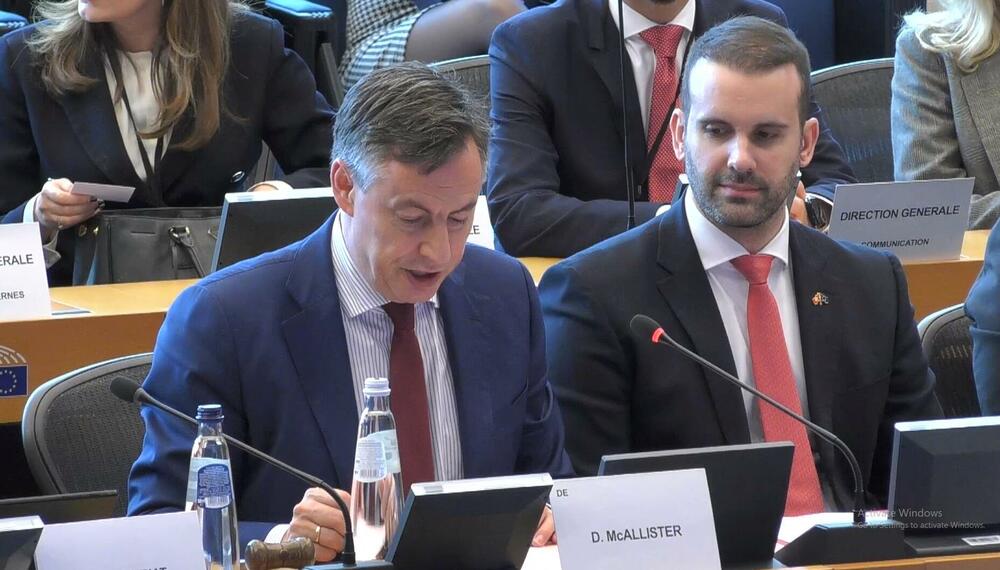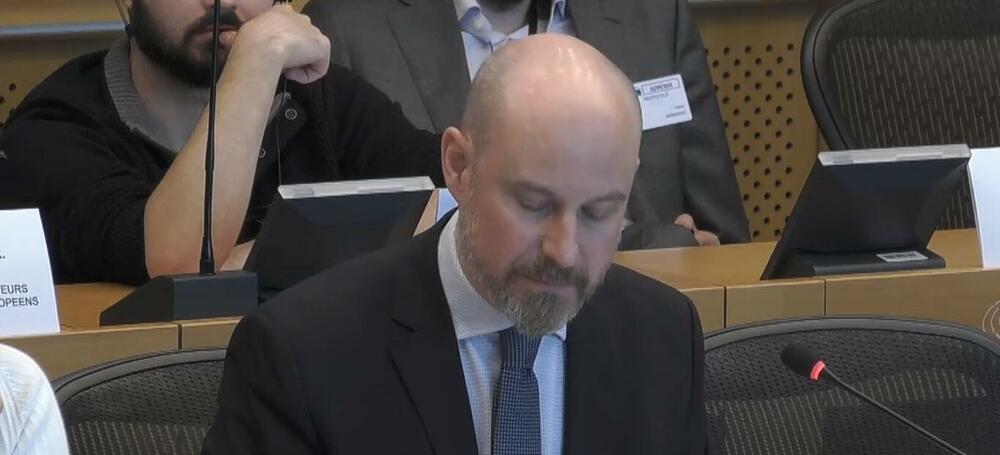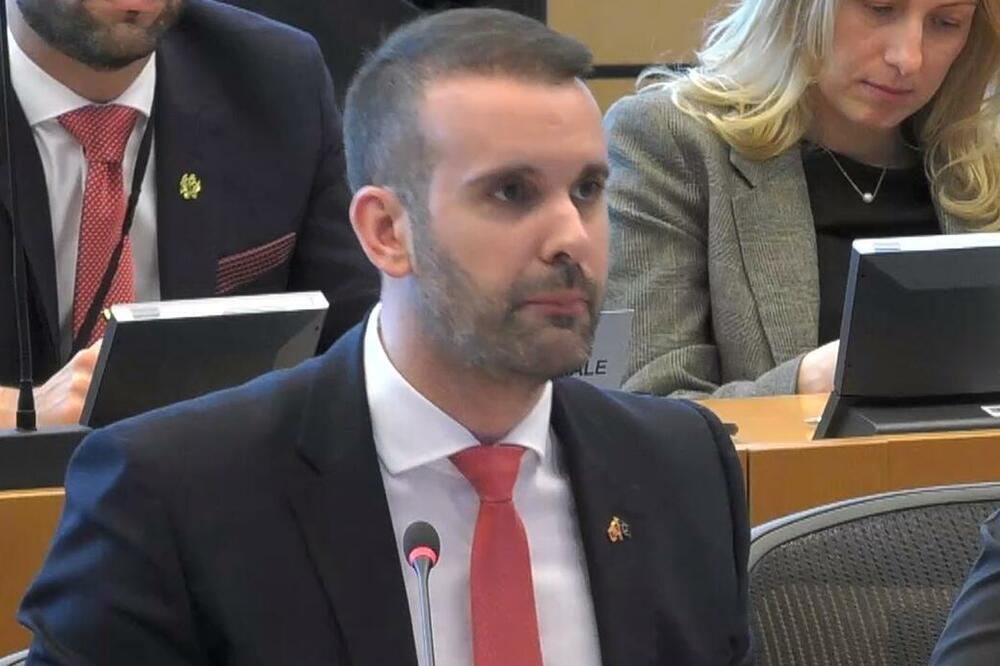By the time Montenegro is proposed for membership in the European Union, it could have a higher average salary than the EU average.
This was said by Prime Minister Milojko Spajić before the Foreign Affairs Committee of the European Parliament (EP) in response to MEPs' questions about the progress of European Union (EU) reforms in Montenegro.
He assessed that for Montenegro the EU does not mean "money from the budget", but that the two "big pillars" are common values and the market.
He said that the average salary in Montenegro will be 1.000 euros by the end of the year, and that Montenegro will not be a burden to the EU until it joins the EU.
He pointed out that Montenegro already behaves as if it were a member of the EU, and that Russian influence is never less.
He said that Montenegro is the only country in the Western Balkans that is 100 percent in line with European values.
He assessed that the governments in the previous 10 years, no matter how they looked, never deviated from European values.
Spajić said that Montenegro has the strictest law on money laundering in Europe. He added that Montenegro wants "real investors" in the country, as well as that state revenues increased by nine percent in January and February.
Everything that the 44th Government has done since its formation was for the sake of accelerating EU membership
In his opening speech, Spajić said that everything the 44th Government has done since its formation was for the sake of accelerating EU membership.
He added that from his first official meeting as Prime Minister with the President of the European Commission (EC) Ursula von der Leyen to his fourth visit to Brussels since the establishment of the executive power, Montenegro has gone through a "fundamental transformation that has enabled us to once again be a leading country in the progress of reforms EU".
He pointed out that the Government is working on all the temporary benchmarks that are needed to obtain the Report on Fulfillment of Temporary Benchmarks (IBAR), as well as that the media laws have been sent to the EC, and will then be presented to the Parliament.
He emphasized that they are very encouraged by the Growth Plan for the Western Balkans and that he expects the EC to soon approve the Growth Plan for Montenegro.
Spajić said that he thinks that the reform agenda of Montenegro is "the most mature", but that this will not relax them, but that they will continue to work on its improvement.
"The current moment represents a unique opportunity for the progress of consolidation, Europe and the Western Balkan region. We firmly believe that Montenegro stands in a favorable position to be the next member of the EU," Spajić said.
He added that Montenegro now, more than ever, recognizes the opportunity for EU membership.

Bilčik: In six months, the parliamentary majority did more for EU reforms than the authorities in the previous six years
Co-chairman of the Parliamentary Committee of the European Union and Montenegro for Stabilization and Association (POSP) Vladimir Bilčik said that the parliamentary majority has done more for EU reforms in six months than the authorities in the previous six years.
He pointed out that the Parliament of Montenegro is a crucial part in the progress of EU reforms, as well as that the EP is ready to help in any form.
Bilčik praised the cooperation of the parliamentary majority and the opposition within the reforms, and emphasized that it is very important for the progress of democratic standards in Montenegro.
He encouraged Spajić that the Government should use all the political and technical opportunities offered by the EP, as well as that he hoped that Montenegro would become the 28th member of the EU in the next mandate of the EP.

When NATO wants to know what is happening in the region, it "calls Montenegro"
MEP from Slovenia, Matjaž Nemec, asked on behalf of Tonin Picula what the Government's position is regarding the comments of the President of the Assembly Andrij Mandić about the NATO alliance, as well as Maja Vukićević's comments that Montenegro will not vote for Kosovo's entry into the Council of Europe.
He also asked why Montenegro did not co-sponsor the United Nations (UN) Resolution on Srebrenica.
The German said that the government "from time to time" does not look stable.
German MEP Hildegrad Bentele said that she invites Spajić to express his opinions on the situation in the region and that "big countries can learn from small ones".
Greek MP Georgijos Kiristos asked Spajić about the population census process and added that according to his information, the government at the national level looks stable, but that there seem to be problems at the local level.
Committee President David McAllister asked how the EP can help Montenegro stay on the EU course, as well as what Spajić is personally doing as Prime Minister to stabilize the accession process.
Spajić said that the opportunity that Montenegro has happens once in two or three decades. Speaking about the census, he said that in previous years, that event was a perfect opportunity for the influence of foreign countries, that is, Russian influence, and that the 44th Government managed to realize it in the first month of its work.
He said that the relationship with all political parties is very important, because this Government highlighted three important points.
"The rule of law, the EU integration process and economic progress. Reducing corruption, better hospitals, better schools... these are on the minds of Montenegrin citizens," Spajić said.
He emphasized that when NATO wants to know what is happening in the region, it "calls Montenegro".
Spajić said that diversity was an obstacle in the previous 30 years, but that it is now the strength of the state.
He added that "it is very difficult to be in good relations with both Kosovo and Serbia", but that Montenegro manages to do so.
In the EP's report on Montenegro adopted in October 2023, the EP praised "Montenegro's long-term commitment to European integration", supported by a high level of public support, and reiterated the parliament's support for the country's efforts to meet the conditions for EU accession.
As stated in the report, MEPs encouraged Montenegro to continue progress, especially in the area of the rule of law, and to start closing the negotiation chapters again.
Montenegro applied for EU membership in 2008, and accession negotiations began in 2012. So far, 33 out of 35 negotiation chapters have been opened.
Bonus video:




